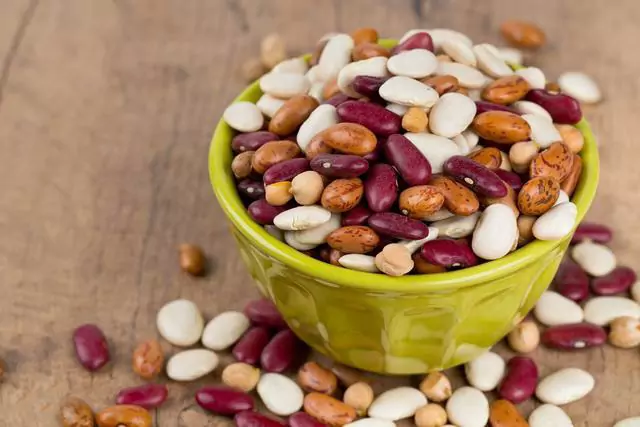Can dogs eat zucchini? The benefits of zucchini for dogs
2022-06-22
Zucchini, also known as weekly pumpkin and wild gourd, is a variant of pumpkin. As a common summer vegetable, zucchini is popular for its thin skin, thick flesh, juicy, meat and vegetable, and stuffing. Compared to tomatoes and broccoli, zucchini is not only cheaper but also more nutritious, containing up to 22-29 mg of calcium per 100 grams of zucchini, simply called the "affordable calcium supplement".
Can dogs eat zucchini? The answer is yes. Compared to other strong-smelling fruits and vegetables, the mild flavor of zucchini is more easily accepted by dogs. So, what health benefits can zucchini bring to dogs? And what feeding precautions should be taken?
I. The benefits of zucchini for dogs
Zucchini is rich in antioxidants
As pet owners know, free radicals are the inevitable products of oxidative reactions that can cause long-term damage to dogs, they can damage their cells and DNA and accelerate the aging process. This is called oxidative stress as if rust is building up in your dog's body, but antioxidants can help remove the damage.
However, dogs do not produce antioxidants on their own and need to get them from food. The carotenoids found in zucchini are a powerful antioxidant that helps protect dogs from free radicals.
Zucchini Improves Digestion
Zucchini is rich in water, which can improve constipation and soften stools in dogs.
In addition, zucchini is rich in soluble and insoluble fiber. Insoluble fiber helps to make your dog's stool larger and improves constipation by absorbing water. Soluble fiber is a food source for the intestinal flora that is responsible for the production of short-chain fatty acids (SCFA) in the dog's intestines. Keeping this flora healthy reduces the chance of intestinal diseases such as the leaky gut, irritable bowel syndrome, and colitis.
Zucchini is rich in many vitamins and minerals
Although dogs are able to make their own vitamins, there are also some natural vitamin supplements that are beneficial to include in their food. For example, vitamin c and K are essential for dogs.
Zucchini is very rich in nutrients and is a natural source of vitamins and minerals. It is rich in vitamins A, C, B6, K and potassium, zinc, manganese, magnesium, copper, and phosphorus. Studies have proven that raw zucchini has a higher vitamin A content than cooked fruit. Therefore, feeding your dog zucchini does not require cooking; just puree the raw zucchini and add it to your dog's food.
Zucchini can help dogs lose weight
Obesity in dogs is a headache for many pet owners. Although the core of weight loss is to eat less and move more, looking at the poor state of their dog's hunger, pet owners tend to constantly compromise ...... if the pet owner has such a problem, may be added to the dog's food zucchini.
First of all, the calorie content of zucchini is very low, 100 grams of zucchini calories are only 17 calories. Secondly, zucchini is high in water and fiber, which can help dogs lose weight. This is because fiber helps reduce hunger and brings a sense of satiety. Secondly, zucchini is a low glycemic vegetable, which means it does not increase your dog's blood sugar.
Zucchini is rich in many vitamins and minerals
Although dogs are able to make their own vitamins, there are also some natural vitamin supplements that are beneficial to include in their food. For example, vitamin c and K, are essential for dogs.
Zucchini is very rich in nutrients and is a natural source of vitamins and minerals. It is rich in vitamins A, C, B6, K and potassium, zinc, manganese, magnesium, copper, and phosphorus. Studies have proven that
raw zucchini has a higher vitamin A content than cooked fruit. Therefore, feeding your dog zucchini does not require cooking, just puree the raw zucchini and add it to your dog's food.

II. Warnings for selecting zucchini
While zucchini is a great health booster for dogs, pet owners must be aware that in some cases, the zucchini you buy can be very bitter or even toxic. This is because of a biochemical found in zucchini called cucurbitacin. This biochemical is usually found in the roots, stems, and leaves.
However, none of the parts of zucchini that we humans eat contain cucurbitacin. Therefore, when feeding zucchini to dogs, you should avoid the root, stem, and leaf parts. If you're not sure, pet owners can taste it before feeding it to their dogs! If it is very bitter, do not feed it to your dog.
The correct way to feed zucchini
For dogs, the tenderer zucchini tastes best. Before feeding zucchini to dogs, pet owners must pay attention.
Cut off the stems of the zucchini.
Steaming at low temperature to improve digestibility (raw food is also acceptable).
Cut into small pieces to break the cell walls and allow the nutrients to be easily absorbed by the dog.
Add these small pieces to your dog's main food.
But, you should also know this about zucchini
Cucurbitacin
If you read the previous article on the pumpkin, you'll remember that at the end of that article, Zipper mentions "pumpkin seed worming"
Pumpkin seeds are rich in cucurbitacin, so when taken in moderation, they can ward off specific parasites from your dog's body
However, cucurbitacin is not an easy nut to crack
Cucurbitacin is most commonly found in the roots, stems, leaves, and seeds of plants, but some vegetables that have been ripened by artificial fertilizers have cucurbitacin spread on the flesh, and excessive intake of cucurbitacin can cause nausea, vomiting, diarrhea, stomach cramps and other symptoms
So how do avoid the intake of cucurbitacin? First of all, we should know that there is no need to worry about cucurbitacin poisoning if you feed your dog zucchini according to the 10% rule
Cucurbitacin will emit a bitter taste, that is, if you buy a zucchini one day, give some to the dog, the rest of your own food, and you find that the zucchini is very bitter, then quickly throw it out with the dog's
As for what to feed the dog, raw is fine, as is boiled in plain water.
Three, what other vegetables can dogs eat?
Asparagus
Asparagus has many benefits for dogs. It's rich in vitamins, minerals, and antioxidants, and it's high in fiber. But like anything, too much of it is never a good thing. So feed it in small amounts to avoid indigestion, and steam the vegetable before feeding it. This will help your dog absorb more of the nutrients. You'll also want to remove the tough fibrous parts of the vegetable stalks.
Persimmon Peppers
Persimmon peppers can be given to dogs, especially the red ones. They are nutritious and contain powerful antioxidants such as lutein and quercetin. And they have four times the vitamin C content of oranges. But peppers have lycopene, which increases inflammation and is toxic to dogs.
If your dog has an inflammatory disease such as arthritis, then it's best to choose another vegetable. You should also remove the seeds while feeding them, as this will prevent indigestion.
Green peppers are not the only vegetable that contains lycopene. Others such as tomatoes, potatoes, and eggplants also contain lycopene. Although dogs can eat these vegetables, you should feed them carefully. They should be fed in moderation and should not be given to dogs with inflammatory diseases.
Broccoli
Broccoli is the jewel in the nutritional crown. It is rich in powerful nutrients that can protect your dog from disease, improve your dog's intestinal health and detoxify your dog's body.
Was this article helpful to you?
Other links in this article
Comments

Is a dog's mouth cleaner than a human's? Dogs' mouths need regular cleaning

Can dogs eat beans? Do dogs eat beans for health?

Can dogs eat lemons? Fruits that dogs should not eat more of

Do dogs have nightmares? Are dogs' dreams similar to humans'?

Can dogs eat raw beef? The benefits and drawbacks of beef for dogs

Is raw meat good for dogs? Can dogs eat raw chicken?

Can dogs eat pomegranates?

Can dogs eat ham?Can all types of ham hocks be eaten?

How to give a dog a bath

Can dogs eat kimchi?










